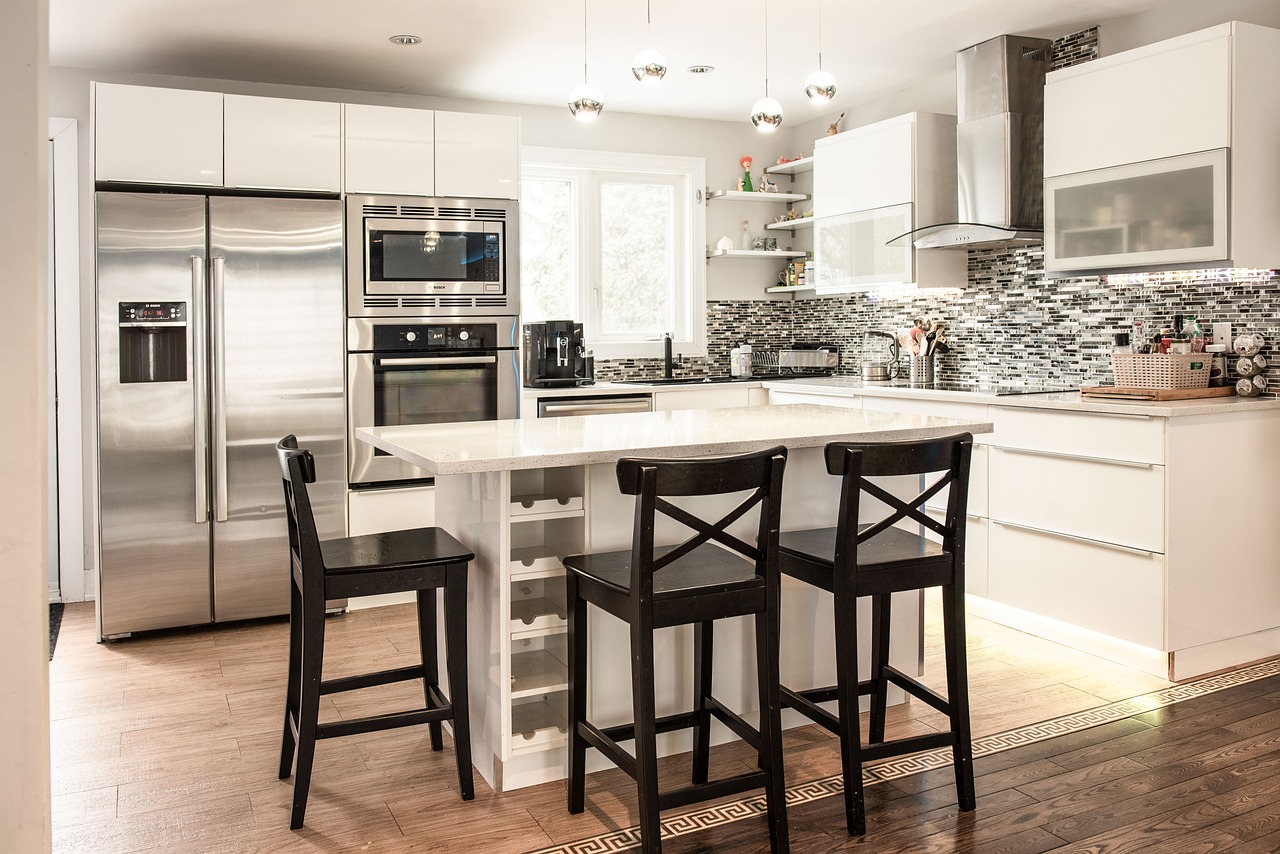There is a reason Australian kitchens are called the heart of every home. It is where family members congregate, meals are prepared, and memories are made. And this is why kitchen renovations are often the most gratifying. Now, as the world becomes more environmentally conscious, homeowners want to blend sustainability with style. A green kitchen renovation reflects a commitment to preserving our planet and offers a healthier space for families.
Thus, if you plan to embark on an eco-friendly kitchen renovation in Sydney, using sustainable materials and innovative ideas to create a space that’s both beautiful and benevolent to the earth is what you’ll be striving for. Here’s how to do it!
Embrace Energy Efficiency
-
Appliances
Start off your green renovation by selecting energy-efficient appliances. Look for products with the ‘Energy Star’ label, which signifies compliance with energy efficiency standards. Upgrading to these appliances can significantly reduce your energy consumption and utility bills. It’s a win-win!
-
Lighting
Swap out incandescent bulbs for LED or CFL options, which use a fraction of the energy. Consider installing skylights or larger windows to maximise natural light, reducing the need for artificial lighting during the day.
Incorporate Sustainable Materials
-
Countertops
Choose materials with minimal environmental impact, such as recycled glass, bamboo, or reclaimed wood. These materials offer unique aesthetics and reduce landfill waste and the demand for new raw materials.
-
Cabinetry
Opt for cabinets made from sustainable woods certified by the Forest Stewardship Council (FSC) or those made from recycled materials. Look for non-toxic finishes and adhesives to ensure indoor air quality isn’t compromised.
-
Flooring
Bamboo and cork are excellent choices for eco-friendly flooring, thanks to their rapid renewability. If you prefer a stone look, consider tiles made from recycled cement.
Prioritise Water Conservation
-
Invest in Water-Savvy Fixtures
Installing low-flow faucets and dishwashers can significantly reduce water usage. Some modern faucets have eco-friendly features like touchless technology or aerators, which mix air with water to reduce usage without sacrificing pressure.
-
Greywater Systems
For the ambitious renovator, consider a greywater system that recycles used water from sinks and dishwashers for non-potable uses, such as watering plants.
Say No to Toxic Paints
-
Go For Low or Zero-VOC Paints
Choose low or zero-VOC (volatile organic compounds) paints. Traditional paints release harmful chemicals into the air, affecting indoor air quality. Eco-friendly options ensure a safer environment for your family and the planet.
-
Buy Natural Sealants and Finishes
Look for natural sealants and finishes to complement your eco-friendly paint choices. These products, derived from organic sources, offer durability and beauty without releasing harmful chemicals into your home environment.
Design for Longevity
-
Timeless Design
Choose a timeless kitchen design that will look great and function well for years to come. Avoiding trendy designs that will feel dated quickly can reduce the need for future renovations.
-
Modular Design
Consider modular units that can be easily replaced or upgraded without a complete overhaul. This approach allows for easy changes as your needs evolve, reducing waste.
Be Smart with Waste Management
-
Recycling Stations
Incorporate designated recycling bins within your kitchen layout to make sorting plastics, glass, and paper an easy and seamless part of daily life.
-
Composting Solutions
If space allows, include an in-kitchen composting bin for organic waste. This can significantly reduce household waste and provide nutrient-rich compost for your garden.
Harness Natural Energy
-
Solar Power
Consider installing solar panels to power your kitchen if your renovation includes structural changes. Solar energy can reduce reliance on fossil fuels and decrease your carbon footprint.
-
Passive Design Elements
Use passive solar design principles to take advantage of natural heating and cooling. Properly placed windows, insulation, and thermal mass can keep your kitchen comfortable year-round with minimal energy use.
The Final part
A green kitchen renovation is a powerful statement of your commitment to sustainability. It’s about creating a space that serves your culinary needs and cares for the environment. Remember, every eco-friendly choice contributes to a larger effort to preserve our planet for future generations. A great bonus of sustainable kitchens is the benefit on your wallet, too, as you save on energy and water bills, and more. Whether you’re making minor updates or planning a full-scale renovation in Sydney, these green kitchen ideas can guide you towards a more sustainable, stylish, and healthy heart of your home.


